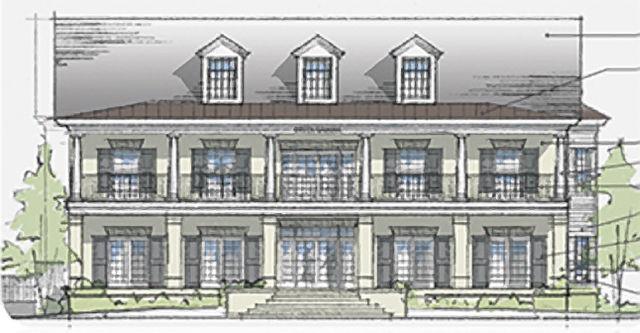With Sigma Nu and Kappa Delta moved into their new Greek houses, the rest of the planning and construction for the new Greek Village is currently underway. The original Greek Village was built in the 1960s, and since then, some of the facilities have become antiquated.
“There is only so much you can do with an old shell,” said Shelly Dobek, the director of Greek Life. “The systems are quite inefficient for heat and for water, and some of the rooms are set up as quads and triples, and students really prefer singles and doubles these days, so that will be a change. They were also built with a communal style bathroom, and a lot of what is being replaced is suite style.”
Greek Village, which will contain 20 new houses and provide 800 new beds to campus, will allow each chapter to design its own facility and space to meet its own needs, according to Dobek. The chapters can customize their square footage and amount of beds in the house to a size that fits their chapters and also control aesthetic choices such as furniture.
The outside appearance of the Greek houses will also be different.
“From a finished standpoint, we have seen with the first two houses that have opened, Kappa Delta and Sigma Nu, have great finishes so they look like a private residence versus block, concrete buildings,” said Dobek.
In addition to aesthetic choices and comfort, chapters have also expressed interest in owning properties rather than renting to build equity and control their own rents.
NC State has committed $12 million toward the construction, but each Greek organization will have to reimburse its construction costs in either a lump sum, or 50 percent up front and 50 percent financed over 10 years, according to a University Housing financial statement.
“Because the university will not be paying full-cost infrastructure, it reduces the total amount of debt that the university has to carry and provide significantly,” Dobek said. “A big benefit is that we are getting university-owned housing without the university having to finance much of it.”
Another part of the upcoming construction phase is the development of townhomes and apartments, which will also be a part of Greek Village.
“The townhomes are meant to accommodate organizations that are smaller in chapter size and really to focus on our multicultural and National Panhellenic Council organizations,” Dobek said. “We want to provide space for those who can’t fundraise to build a $4 million facility and be inclusive of our entire community.”
Joshua Welch, associate director of Greek Life, hopes that with the inclusion of these alternative living choices, it will bring more communities together and help other groups find pride.
“The opportunity is to give organizations that are both housed and un-housed an identity on campus,” Welch said. “Within the village, groups who choose not to have houses will still have the opportunity to display their letters and have pride. Greek Village will pull the community in closer to one and another and build bonds with other organizations.”
Along with building community relationships, the construction process will also bring more alumni to their chapters.
“This project allows us to engage alumni on a much deeper level than we have in the past,” Welch said. “With this new piece, we are able to engage house corporations and alumni boards, which pulls alumni closer to the institution to strengthen those relationships.”
The next house set for breaking ground is the Delta Gamma sorority. Breaking ground is scheduled for March 22, and the target move-in date is fall 2016.
“We are bursting at the seams of our current house,” said Rachel Walter, a freshman studying environmental sciences and a sister of Delta Gamma. “We have had to hold our chapter meetings on campus in classrooms because we just don’t have the space to conduct meetings in our own house.”








